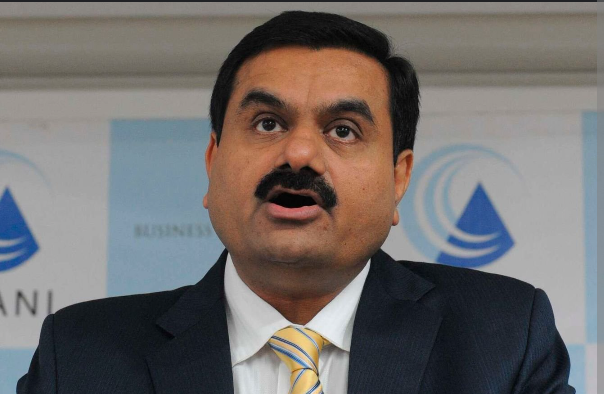The recent controversy involving India’s Adani Group and Jomo Kenyatta International Airport (JKIA) has raised concerns in Kenya, particularly regarding the potential use of the airport’s title deed as collateral for loans.
The proposed deal, submitted in March 2024, would involve a Ksh 260 billion investment by Adani to expand and modernize JKIA.
However, the possibility of transferring the title deed to Adani for the duration of a 30-year lease has alarme many stakeholders, including whistleblower Nelson Amenya.
Amenya, who has been vocal about the issue, has revealed that the terms of the deal would give Adani considerable control over JKIA.
In particular, he claims that Adani seeks to use the title deed of JKIA as collateral to secure loans, which could expose the country’s primary international airport to financial vulnerabilities.
Adani’s control would extend beyond just the financial aspects.
According to Amenya, the deal would grant the company control over airport fees, staffing, and the ability to block the development of other airports in Kenya.
Such a monopoly would majorly impact the country’s aviation industry.
Moreover, the deal includes clauses that require the Kenyan government to compensate Adani for any disruptions, such as protests, political actions, or legislative measures that may impact the project.
This has raised concerns about the lack of transparency in the deal and the potential risks it poses to Kenya’s economy.
Amenya has also pointed out that Adani would retain an 18% stake in the airport even after the 30-year lease ends, further raising questions about Kenya’s long-term control over its infrastructure.
The controversy has led to legal action, with the Law Society of Kenya (LSK) and the Kenya Human Rights Commission (KHRC) filing a petition to halt the deal.
In September 2024, the High Court issued a stay order preventing the government from proceeding with any actions related to the lease.
This ruling came as a response to concerns about the legality and transparency of the deal, particularly regarding the potential risks posed by using JKIA’s title deed as collateral.
The government, for its part, has reassured the public that JKIA is not for sale and remains a strategic national asset.
Isaac Mwaura, the government spokesperson, confirmed that no final agreement has been reached, and the proposal is still under review.
He emphasized that the deal is undergoing due process, which includes consultations with various stakeholders.
Despite these reassurances, critics argue that the proposed deal could undermine Kenya’s aviation sector and its broader economic goals.
The potential loss of control over a key national asset like JKIA could have far-reaching consequences, particularly as Kenya seeks to position itself as a regional aviation hub in line with its Vision 2030 development plan.
The fact that the revenue generated by the project would be funneled through a Special Purpose Vehicle (SPV) based in Abu Dhabi has further fueled suspicions about the financial structure of the deal.
The Adani-JKIA controversy highlights the delicate balance between attracting foreign investment and maintaining control over strategic national assets.
The potential use of JKIA’s title deed as collateral for loans adds a layer of financial risk that has prompted legal and public scrutiny.
It remains to be seen whether the Kenyan government will move forward with the deal or reconsider in light of growing opposition.





















Add Comment